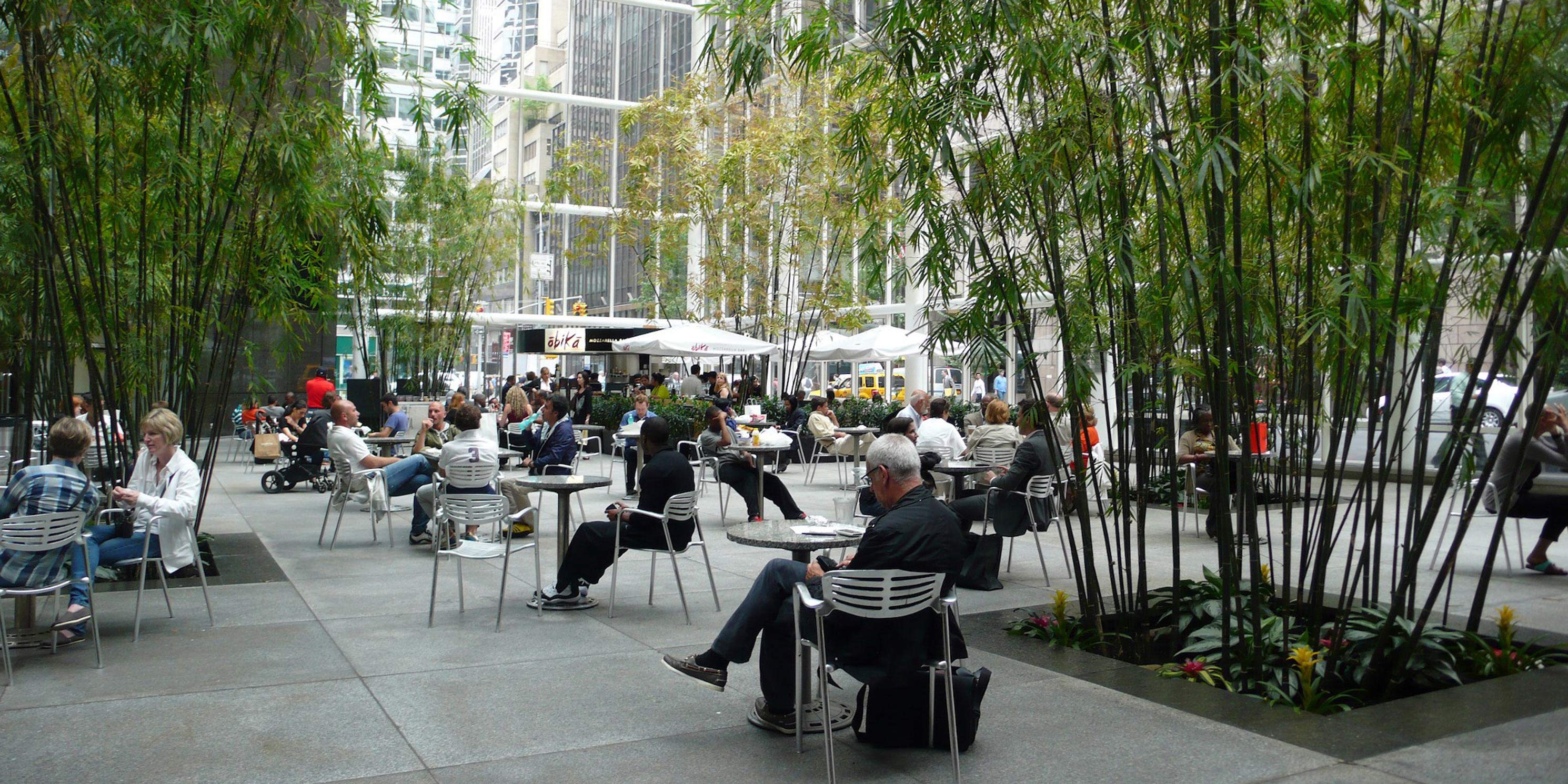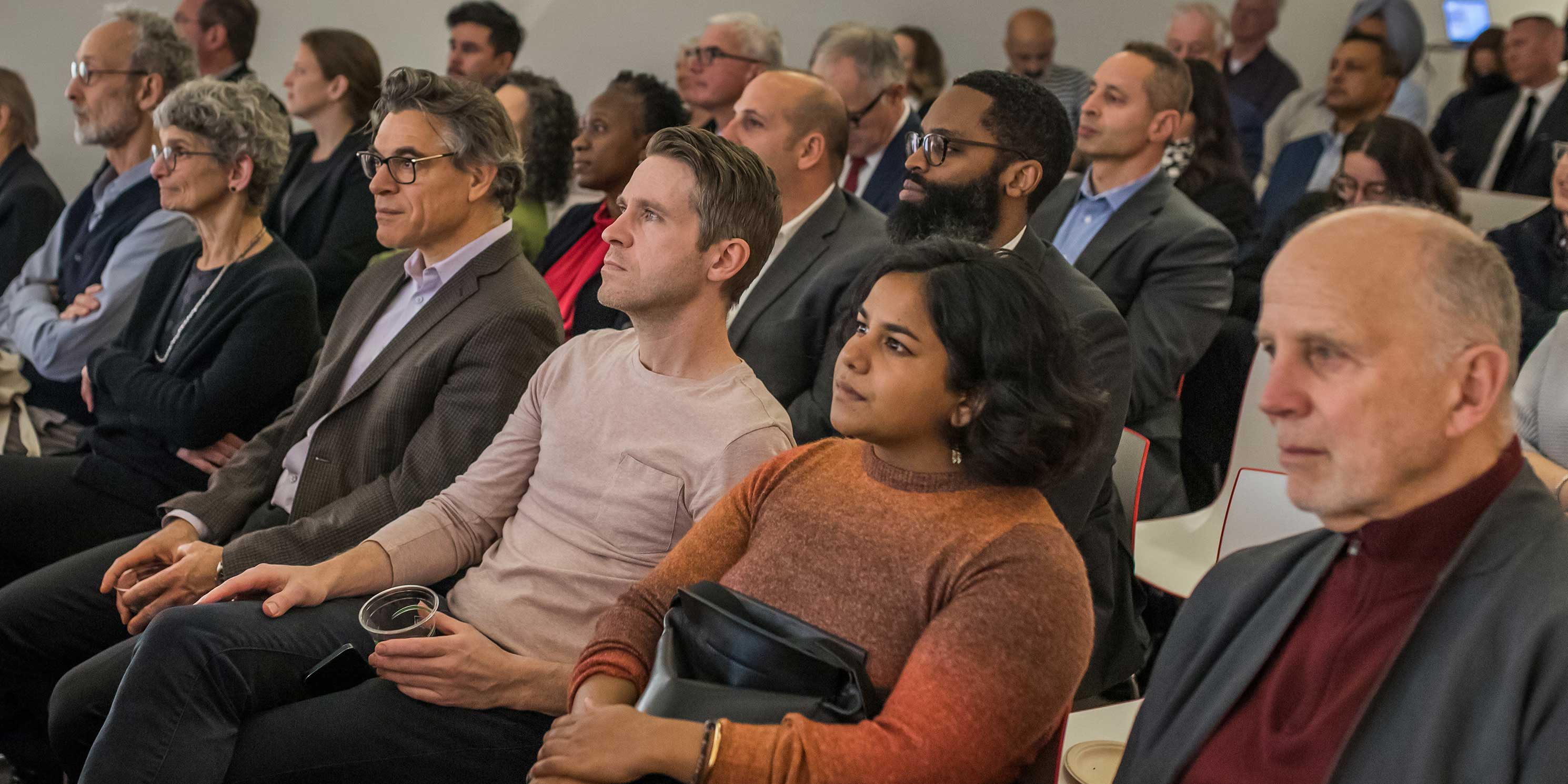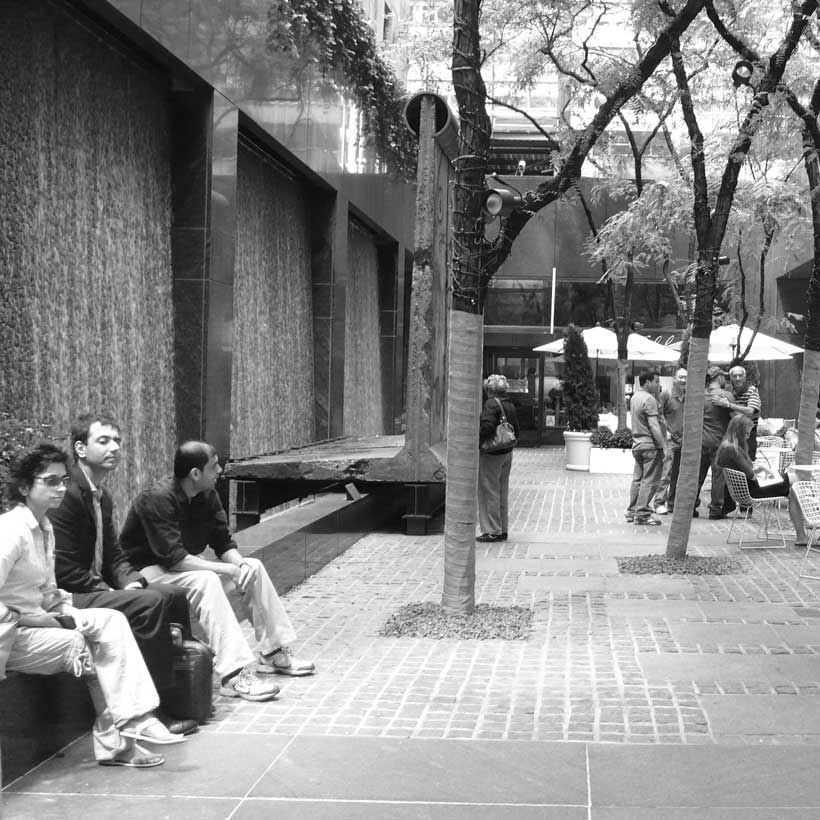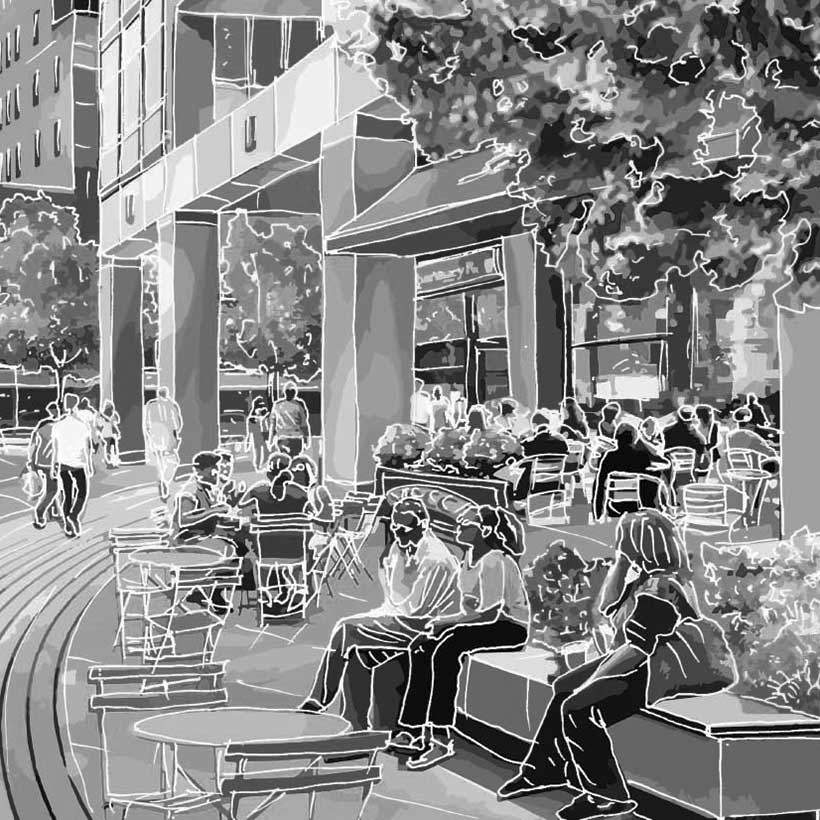MAS Testimony to the Committee on Land Use Regarding Reporting on the Compliance Statuses of POPS
There is an opportunity to improve the city's POPS even further
The Municipal Art Society of New York (MAS) supports Intro 1219, but proposes a series of modifications to strengthen the City’s oversight powers for New York’s privately-owned public spaces (POPS).
Download Testimony
Background
In our city-wide review of POPS conducted in 2000, MAS and partner Professor Jerold S. Kayden gave 41% of POPS a “marginal” rating and found that over 50% were in some way out of compliance. Despite our findings, City government and community stakeholders still lack a comprehensive and transparent set of mechanisms and oversight processes to ensure that POPS are kept open to the public, in good condition, and in alignment with the needs of the community.
The recent debate about the future of the Water Street POPS underscores the need for better oversight of these cherished public spaces. When POPS are allowed to fall into disrepair or disuse, as happened along the Water Street corridor, the public risks losing these spaces altogether to retail or other private uses without fair compensation to the public benefit. The passage of Water Street Upgrades Text Amendment N 160166 ZRM earlier this month demonstrates that New York City can no longer settle for a hands-off approach to POPS.
Recommended Modifications
As such, MAS supports Intro. 1219 proposed by Council Members Greenfield and Kallos, but we also believe there is an opportunity to improve the city’s POPS further.
We propose the following modifications:
- Extend Oversight and Reporting Requirements to all POPS: The reporting requirements described in Intro. 1219, should be applied to all POPS in the inventory.
- Launch a Multi-Stakeholder POPS Working Group: The Working Group would comprise relevant agencies such as Department of City Planning, Department of Buildings, New York City Economic Development Corporation, and non-governmental organizations and be empowered to develop policy recommendations that:
- Establish a Public Review Process for POPS: A comprehensive review of all POPS is long overdue and should commence as soon as practicable. Moreover, a regular schedule of repeated review should be set to reduce the burden on City staff and ensure POPS that fall into disrepair or become underutilized are quickly detected. Appropriate action may then be taken to enforce requirements and improve the space on a timely basis. The Working Group would determine specific metrics to gauge POPS performance that would generally measure design quality, compliance with existing permit objectives, public utilization, and connectivity with the surrounding community and opportunities for improvement.
- Require POPS Owners to Calculate Public Benefits: The 1961 Zoning Resolution allowed for the creation of POPS by granting property owners additional FAR in exchange for the inclusion of public space on their land. As conceived, both the additional FAR and public space were intended to exist in perpetuity. However, there may be instances in the future when, following the proposed public review process, it is determined that a POPS either needs modification, reduction or removal from the inventory. At present the rules governing POPS do not require property owners to complete a full accounting of their costs and benefits in exchange for making any changes to their POPS. Such an economic analysis – of every POPS – would allow for better decision making by City officials about individual POPS and the program in general. It would also assure New Yorkers that these public spaces are valued, as well as protected, and that public benefit is maintained if changes are made to specific POPS.
- Prioritize POPS within City Government: City government needs the organizational capacity, incentive programs, and enforcement mechanisms to make POPS a priority. The Working Group should develop strategies that integrate these new processes into existing agencies so that is not overly burdensome.


